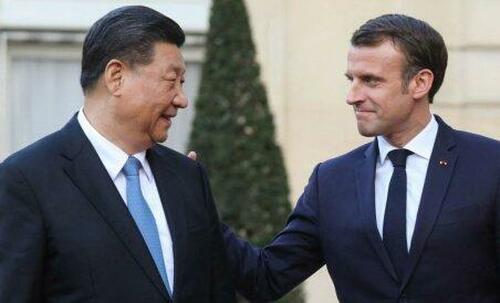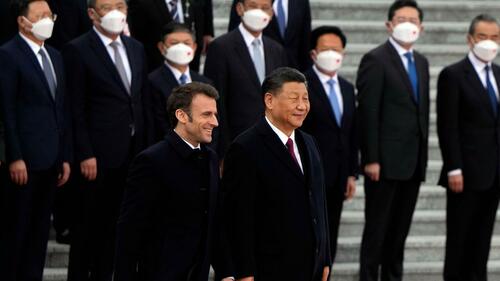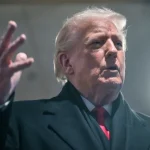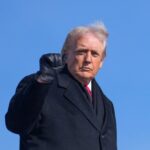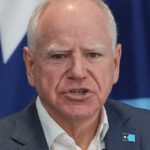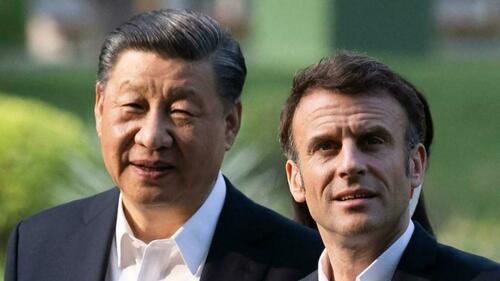
As the United States combats a recent flood of countries 'de-dollarizing' - trading commodities in other currencies, the last thing that was needed was French President Emanuel Macron amplifying this message.
After spending around six hours with Chinese President Xi Jinping as part of a three-day state visit to China, Macron made extremely clear that France wants nothing to do with WWIII, emphasizing that Europe must employ "strategic autonomy," presumably led by France, to become a "third superpower," according to Politico.
While speaking with reporters aboard COTAM Unité, France’s Air Force One, the French President said that the "great risk" facing Europe right now is that it "gets caught up in crises that are not ours, which prevents it from building its strategic autonomy."
This isn't the first time Macron has suggested reducing dependence on the US. In November, the French President called for a "single global order" while discussing the power interests of Russia and China and the threat of war.
"We are in a jungle and we have two big elephants trying to become more and more nervous," he said.
"If they become very nervous and start a war, it will be a big problem for the rest of the jungle. You need the cooperation of a lot of other animals, tigers, monkeys and so on," added Macron.
China agrees
Macron's concept of strategic autonomy was 'enthusiastically endorsed' by Xi and the CCP, who have been focusing on the notion that the West is in decline while China rises, and that weakening the transatlantic relationship will accelerate this trend.
"The paradox would be that, overcome with panic, we believe we are just America’s followers," said Macron. "The question Europeans need to answer … is it in our interest to accelerate [a crisis] on Taiwan? No. The worse thing would be to think that we Europeans must become followers on this topic and take our cue from the U.S. agenda and a Chinese overreaction."
Just hours after his flight left Guangzhou headed back to Paris, China launched large military exercises around the self-ruled island of Taiwan, which China claims as its territory but the U.S. has promised to arm and defend.
Those exercises were a response to Taiwanese President Tsai Ing-Wen’s 10-day diplomatic tour of Central American countries that included a meeting with Republican U.S. House Speaker Kevin McCarthy while she transited in California. People familiar with Macron’s thinking said he was happy Beijing had at least waited until he was out of Chinese airspace before launching the simulated “Taiwan encirclement” exercise. -Politico
Macron's submissive statements come after he and Xi 'intensely' discussed Taiwan, according to French officials who accompanied the president.
That said, European Commission President Ursula von der Leyen, who accompanied Macron, said she stressed stability in the region, telling Xi during their meeting last Thursday in Beijing that "The threat [of] the use of force to change the status quo is unacceptable."
According to the report, Xi responded by calling anyone who thought they could influence the CCP on Taiwan was deluded.
"Europeans cannot resolve the crisis in Ukraine; how can we credibly say on Taiwan, ‘watch out, if you do something wrong we will be there’? If you really want to increase tensions that’s the way to do it," said Xi.
According to Yanmei Xie, a geopolitics analyst at Gavekal Dragonomics, "Europe is more willing to accept a world in which China becomes a regional hegemon."
"Some of its leaders even believe such a world order may be more advantageous to Europe."
During Xi's trilateral talks with von der Leyen and Macron last Thursday, the Chinese leader became upset over two things;
"Xi was visibly annoyed for being held responsible for the Ukraine conflict and he downplayed his recent visit to Moscow," said one source who was present in the room. "He was clearly enraged by the U.S. and very upset over Taiwan, by the Taiwanese president’s transit through the U.S. and [the fact that] foreign policy issues were being raised by Europeans."
In this meeting, Macron and von der Leyen took similar lines on Taiwan, this person said. But Macron subsequently spent more than four hours with the Chinese leader, much of it with only translators present, and his tone was far more conciliatory than von der Leyen’s when speaking with journalists. -Politico
Time to ditch the dollar?
Macron suggested that Europe was too dependent on the United States for weapons and energy, and must now focus on boosting their own defense industries.
But perhaps most notable was his suggestion that Europe needs to reduce its dependence on the "extraterritoriality of the U.S. dollar," a line which both Moscow and Beijing have been emphasizing.
"If the tensions between the two superpowers heat up … we won’t have the time nor the resources to finance our strategic autonomy and we will become vassals," he said.
Russia, China, Iran and other countries have been hit by U.S. sanctions in recent years that are based on denying access to the dominant dollar-denominated global financial system. Some in Europe have complained about “weaponization” of the dollar by Washington, which forces European companies to give up business and cut ties with third countries or face crippling secondary sanctions.
While sitting in the stateroom of his A330 aircraft in a hoodie with the words “French Tech” emblazoned on the chest, Macron claimed to have already “won the ideological battle on strategic autonomy” for Europe. -Politico
Meanwhile, an interesting footnote...
As is common in France and many other European countries, the French President’s office, known as the Elysée Palace, insisted on checking and “proofreading” all the president’s quotes to be published in this article as a condition of granting the interview. This violates POLITICO’s editorial standards and policy, but we agreed to the terms in order to speak directly with the French president. POLITICO insisted that it cannot deceive its readers and would not publish anything the president did not say. The quotes in this article were all actually said by the president, but some parts of the interview in which the president spoke even more frankly about Taiwan and Europe’s strategic autonomy were cut out by the Elysée.
As the United States combats a recent flood of countries ‘de-dollarizing‘ – trading commodities in other currencies, the last thing that was needed was French President Emanuel Macron amplifying this message.
After spending around six hours with Chinese President Xi Jinping as part of a three-day state visit to China, Macron made extremely clear that France wants nothing to do with WWIII, emphasizing that Europe must employ “strategic autonomy,” presumably led by France, to become a “third superpower,” according to Politico.
While speaking with reporters aboard COTAM Unité, France’s Air Force One, the French President said that the “great risk” facing Europe right now is that it “gets caught up in crises that are not ours, which prevents it from building its strategic autonomy.“
This isn’t the first time Macron has suggested reducing dependence on the US. In November, the French President called for a “single global order” while discussing the power interests of Russia and China and the threat of war.
“We are in a jungle and we have two big elephants trying to become more and more nervous,” he said.
“If they become very nervous and start a war, it will be a big problem for the rest of the jungle. You need the cooperation of a lot of other animals, tigers, monkeys and so on,” added Macron.
China agrees
Macron’s concept of strategic autonomy was ‘enthusiastically endorsed’ by Xi and the CCP, who have been focusing on the notion that the West is in decline while China rises, and that weakening the transatlantic relationship will accelerate this trend.
“The paradox would be that, overcome with panic, we believe we are just America’s followers,” said Macron. “The question Europeans need to answer … is it in our interest to accelerate [a crisis] on Taiwan? No. The worse thing would be to think that we Europeans must become followers on this topic and take our cue from the U.S. agenda and a Chinese overreaction.”
Just hours after his flight left Guangzhou headed back to Paris, China launched large military exercises around the self-ruled island of Taiwan, which China claims as its territory but the U.S. has promised to arm and defend.
Those exercises were a response to Taiwanese President Tsai Ing-Wen’s 10-day diplomatic tour of Central American countries that included a meeting with Republican U.S. House Speaker Kevin McCarthy while she transited in California. People familiar with Macron’s thinking said he was happy Beijing had at least waited until he was out of Chinese airspace before launching the simulated “Taiwan encirclement” exercise. -Politico
Macron’s submissive statements come after he and Xi ‘intensely’ discussed Taiwan, according to French officials who accompanied the president.
That said, European Commission President Ursula von der Leyen, who accompanied Macron, said she stressed stability in the region, telling Xi during their meeting last Thursday in Beijing that “The threat [of] the use of force to change the status quo is unacceptable.”
According to the report, Xi responded by calling anyone who thought they could influence the CCP on Taiwan was deluded.
“Europeans cannot resolve the crisis in Ukraine; how can we credibly say on Taiwan, ‘watch out, if you do something wrong we will be there’? If you really want to increase tensions that’s the way to do it,” said Xi.
According to Yanmei Xie, a geopolitics analyst at Gavekal Dragonomics, “Europe is more willing to accept a world in which China becomes a regional hegemon.”
“Some of its leaders even believe such a world order may be more advantageous to Europe.”
During Xi’s trilateral talks with von der Leyen and Macron last Thursday, the Chinese leader became upset over two things;
“Xi was visibly annoyed for being held responsible for the Ukraine conflict and he downplayed his recent visit to Moscow,” said one source who was present in the room. “He was clearly enraged by the U.S. and very upset over Taiwan, by the Taiwanese president’s transit through the U.S. and [the fact that] foreign policy issues were being raised by Europeans.”
In this meeting, Macron and von der Leyen took similar lines on Taiwan, this person said. But Macron subsequently spent more than four hours with the Chinese leader, much of it with only translators present, and his tone was far more conciliatory than von der Leyen’s when speaking with journalists. -Politico
Time to ditch the dollar?
Macron suggested that Europe was too dependent on the United States for weapons and energy, and must now focus on boosting their own defense industries.
But perhaps most notable was his suggestion that Europe needs to reduce its dependence on the “extraterritoriality of the U.S. dollar,” a line which both Moscow and Beijing have been emphasizing.
“If the tensions between the two superpowers heat up … we won’t have the time nor the resources to finance our strategic autonomy and we will become vassals,” he said.
Russia, China, Iran and other countries have been hit by U.S. sanctions in recent years that are based on denying access to the dominant dollar-denominated global financial system. Some in Europe have complained about “weaponization” of the dollar by Washington, which forces European companies to give up business and cut ties with third countries or face crippling secondary sanctions.
While sitting in the stateroom of his A330 aircraft in a hoodie with the words “French Tech” emblazoned on the chest, Macron claimed to have already “won the ideological battle on strategic autonomy” for Europe. -Politico
Meanwhile, an interesting footnote…
As is common in France and many other European countries, the French President’s office, known as the Elysée Palace, insisted on checking and “proofreading” all the president’s quotes to be published in this article as a condition of granting the interview. This violates POLITICO’s editorial standards and policy, but we agreed to the terms in order to speak directly with the French president. POLITICO insisted that it cannot deceive its readers and would not publish anything the president did not say. The quotes in this article were all actually said by the president, but some parts of the interview in which the president spoke even more frankly about Taiwan and Europe’s strategic autonomy were cut out by the Elysée.
Loading…
